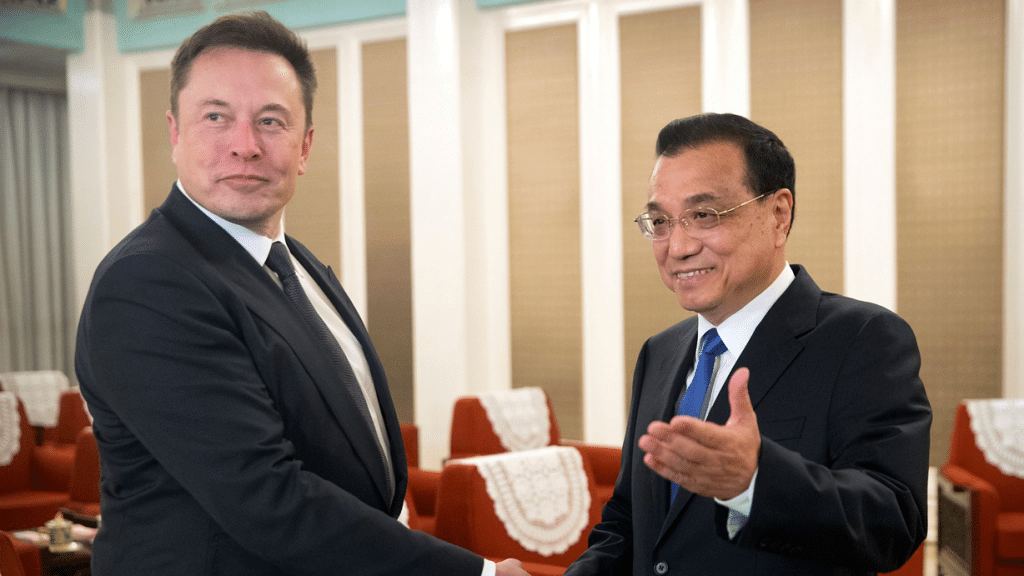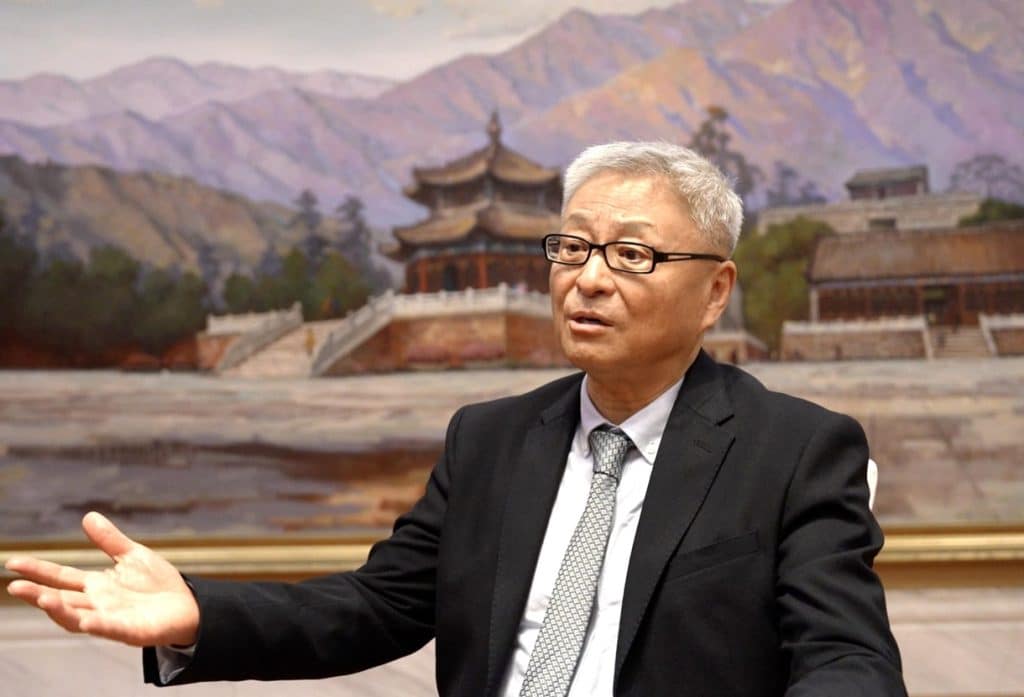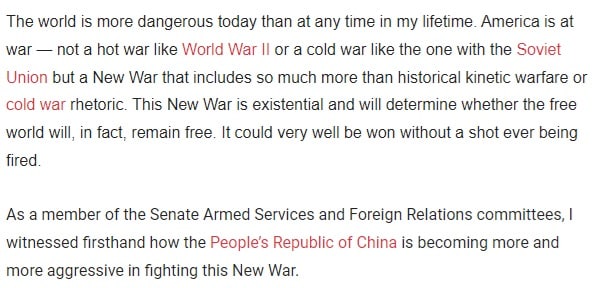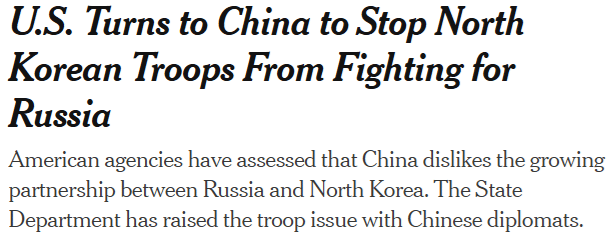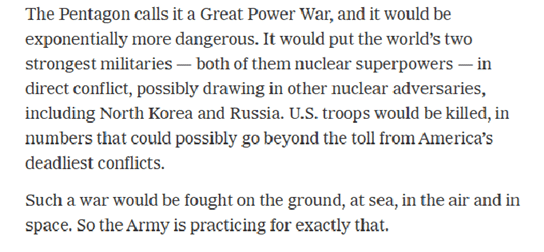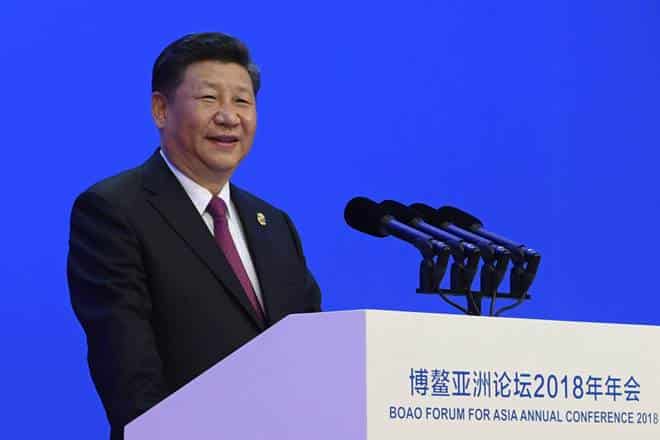A Tipping Point in US-China Relations is Upon US
作者:David Lampton 来源:US-China Perception Monitor
Below is Dr. David M. Lampton’s speech “A Tipping Point in U.S.-China Relations is Upon Us” as given at the conference “China’s Reform: Opportunities and Challenges.” This event was co-hosted by The Carter Center and the Shanghai Academy of Social Sciences over May 6-7, 2015.
I want to thank the Carter Center and the World Forum/ Shanghai Academy of Social Sciences for convening this important meeting at this critical time. I also want to thank Ambassador Peters for her remarks and note not only her SAIS connection, but also her remark that the Carter Center has the mission of “waging peace.”
No less, it is a great pleasure and honor to share this podium with an old friend, former Foreign Minister Li Zhaoxing, and I note he did provide us “nutrition for the mind.” And last but not least, it is good to be on the platform with Professor Huang Renwei, a friend of long standing. I remember our many times together with Mayor Wang Daohan who did so much for Shanghai and China’s modernization and integration into the world. I thought Huang Renwei’s mention of the importance of Atlanta to our relationship reflects the importance of localities to bilateral ties. Localities are not burdened with the contentious issues that sometimes tie up our national capitals. Localities are the heart of the economic and cultural relationships that are core to bilateral ties—locality-to-locality ties should be nurtured.
Here at the Carter Center 37 years after the event, it is fitting that we recall the vision, courage, and leadership demonstrated by President Carter and Vice Premier Deng Xiaoping when they normalized U.S.-China relations despite the daunting uncertainties and risks confronting them at that time.
Today, soon after May 4th and in the context of the 70th anniversary of the end of WWII, the question is whether or not America and China can, again, find such vision and leadership in today’s far different circumstances. My purpose in the frank remarks to follow is not to depress or offend, but rather to motivate all of us to push events in a better, more mutually beneficial direction. My spirit is at one with Minister Li’s exhortation that we “amplify what we have in common.”
For eight U.S. and five Chinese administrations, Washington and Beijing maintained remarkable policy continuity—broadly speaking, constructive engagement. This continuity has persisted despite periodic instabilities, problems, and crises. Some of these developments required time, flexibility, and wisdom to heal. They sometimes left scar tissue. But, none of these challenges ever destroyed overall assessments in both our nations that we each had fundamental, shared interests requiring cooperation and that the costs of conflict outweighed possible gains.
Assessments of relative power in both countries for much of the last four decades created few incentives in either society to rethink fundamental policy. Chinese seemingly were resigned to “live with the hegemon,” as one respected Chinese professor put it, and Americans were secure in their dominance and preoccupied with conflicts elsewhere. After the 9/11 attacks on America, China was seen as non-threatening, indeed willing to use some of its resources in the “War on Terror.” In a reflective moment after the 9/11 attacks, then Ambassador to China Sandy Randt delivered a speech to Johns Hopkins–SAIS in which he said, “We have seen the enemy, and it is not China.”
In the economic realm, expectations for growth in each society created common interests that subordinated many underlying frictions, whether economic or human rights. The positive balance between hope and fear tipped behavior toward restraint and patience. Things unfortunately have changed dramatically since about 2010. The tipping point is near. Our respective fears are nearer to outweighing our hopes than at any time since normalization.
We are witnessing the erosion of some critical underlying supports for predominantly positive U.S.-China ties. Though the foundation has not crumbled, today important components of the American policy elite increasingly are coming to see China as a threat to American “primacy.” In China, increasing fractions of the elite and public see America as an impediment to China’s achieving its rightful international role and not helpful to maintaining domestic stability.
Former Australian Prime Minister Kevin Rudd put it well, characterizing the narrative of an unidentified Chinese Communist Party document [perhaps the new National Security Blue Book], and analogous American thinking, in the following terms: “In Beijing’s eyes the U.S. is deeply opposed to China’s rise … American strategy toward China, it said, had five objectives: to isolate the country, contain it, diminish it, divide it, and sabotage its political leadership.” The American narrative, as Rudd described it, is hardly more positive about Beijing: “Beijing’s long-term policy is aimed at pushing the U.S. out of Asia altogether and establishing a Chinese sphere of influence spanning the region.”[1]
Since about 2008, there has been a sequence of regional and global developments and incidents that have provided fertile soil in which these negative narratives have grown in each of our societies. Among them are: the 2008 financial crisis, incidents in Hong Kong, developments in the south and east China seas, U.S. inability to quickly exit Middle Eastern and Central Asian quagmires, and the confusion in America and elsewhere about where China is headed internally and in terms of its foreign policy. Current Chinese debate over western (universal) values, subversion, and “black hands” unsettles most outside observers, not least Americans.
What is happening? If developments continue along the current trajectory, both countries will have progressively less security, at higher cost; the probabilities of intentional, accidental, or catalytic violent confrontations will increase; the world will enjoy less cooperation on transnational issues requiring joint Sino-American efforts; and, economic welfare in both societies will be diminished. What can be done?
Fundamentally, America has to rethink its objective of primacy and China must recalibrate its own sense of strength and what that entitles it to. Americans must find ways to accommodate China’s rightful desire for greater voice in international affairs and institutions such as the IMF, and China should improve relations with its neighbors—reassure them. The words “accommodation” or “compromise” in either China or the United States should not be dirty words. Both nations must be more realistic about their own power, what constitutes power, and how it can be exercised in a world in which a central reality is interdependence. Sino-American interdependence needs to be systematically reinforced, and joint security and economic institutions must be created. Balance and stability in Asia should be our objective, not the primacy of either side.
The last nearly five decades of peace have dulled the senses of those who have forgotten, or never experienced, the costs of the Cold War.
Straws in the Wind
To inject balance into this somber portrait, there have been some significant and positive recent developments in U.S.-China relations and Chinese foreign policy, not least President Xi Jinping’s oft-expressed desires to avoid conflict, emphasize cooperation, and to pursue mutually beneficial outcomes—“a New Type of Major Power Relationship.” Other developments include: agreement to pursue a bilateral investment treaty; some progress on Sino-Japanese and Sino-Vietnamese relations; progress in the climate change area; somewhat improved military-to-military exchanges; and, the recent and upcoming summits between presidents Obama and Xi. Trade, finance, and other economic relations are making progress, and U.S.-China student and cultural exchange is thriving, with one-third of ALL foreign students in the U.S. from the PRC.
Nonetheless, the leaderships in our two countries also have headed in undesirable directions in some of their remarks and actions. President Obama’s February 18 instructions to White House staff disseminated publicly said: “That is why we have to make sure the United States—and not countries like China—is the one writing this century’s rules for the world economy.” Such remarks (later alternately softened and hardened as domestic politics seemed to suggest) are unrealistic and counterproductive, alienating the United States not only from those already suspicious of America, but also from allies. This attitude contributed to the initial U.S. decision to resist the Asian Infrastructure Investment Bank (AIIB) and the eventual outcome in which fifty-seven nations, many American friends or allies, agreed to become charter members of the AIIB despite initial U.S. preferences. For an unnamed U.S. official to criticize, publicly, Britain’s “constant accommodation” of China, saying that this “is not the best way to engage a rising power,”[2] erodes influence with friends and competitors alike.
Similarly, China’s senior leader set off alarm bells by saying that: “Let people of Asia run the affairs of Asia, solve the problems of Asia and uphold the security of Asia.”[3] Earlier remarks in 2010 by another senior official set off reaction when saying: “China is a big country and other countries are small countries, and that’s just a fact.” These remarks, whether made by Washington or Beijing, are unhelpful.
While Beijing and Washington now are using the rhetoric of “competitors” in polite public discussion, increasingly strategic thinkers in both nations are acting on the assumption that we are “adversaries” in the security realm. If one believes, as I do, that in the final analysis perceived security threats trump economic and cultural interests, this suggests that admittedly enormous shared economic and cultural interests may not prevail over diverging security concerns.
There is more than one way for one nation to contribute to the security anxieties of another nation–One is to identify perceived challenges to your own security and then propose muscular ways to respond. Such voices are gaining strength in the United States, though they are not yet policy. These views suggest that: the past decades of engagement efforts with the PRC have created a national security challenge for Washington, not a cooperative partner; that America needs a new grand strategy relating to China that maintains U.S. primacy; that tighter export controls and more allied unity are needed with respect to China; that more defense spending and hardware deployments to the region are needed, along with further allied cooperation on missile defense[4][5]
Another way to be provocative, in this case China, is to assert that: America is decreasingly able to act effectively in Asia; that the Pax Americana in the region is dead; that the United States is “unshackling” Japan to ride roughshod over the region; and, to ignore the security benefits of the U.S.-Japan alliance and instead focus on the allegedly destabilizing character of the alliance.[6] Most worrisome, many thinking Americans believe that Beijing is implementing a strategy to incrementally, and unilaterally, change the status quo in the East and South China Seas, with the construction of new and expanded “islands” being just the most recent manifestation.
The trend in domestic discourse in both China and the United States over the last fifteen years has been from engagement, to a light hedge, to a heavy hedge, and increasingly toward deterrence. Deterrence vocabulary leads to discussions of threat, will, capability, second-strike, and credibility. This is a far different vocabulary than the one that generally was employed during the last forty years. What worries me greatly is the gradual migration of the center of gravity of elite and popular discussion in both nations toward more extreme analyses and policy recommendations that simply feed one another. Past policy has not collapsed, but it is weakening.
Underlying Causes of these Policy Tendencies
So, what are the underlying causes of these phenomena?
– First,the diffuse (though never universally shared) sense in America since 1978 that China generally was going “in a positive direction” in terms of societal and governance trends, economic policy, and international citizenship is seriously eroding in the United States, not least among policy elites. Confidence that a growing middle class, exposure to the world, and integration with it would produce growing value and/or interest convergence over time is challenged by the PRC’s perceived domestic political tightening and muscularity abroad. In the security realm, waning confidence that China is “going in a positive direction” means that the hope that economic interdependence would produce tolerable security cooperation increasingly is questioned, despite some recent progress in military-to-military ties and other important issues. In the last few years an almost imperceptible tipping point nearly has been reached with respect to U.S. assessments of China’s internal and external policy direction. I should say, certain domestic economic initiatives seem quite positive.
– Another tipping point consideration is power. Until the new millennium the United States was relatively secure in its position as the sole economic and military superpower. This sense of security has gradually eroded under the combined weight of 9/11, the Iraq and Afghanistan Wars, the 2008 global financial crisis, partisan gridlock at home, and Chinese activities and responses in Northeast, East, and Southeast Asia since 2010. Meanwhile, the PRC has had its post-WTO entry growth spurt, weathered the 2008 global financial crisis in relatively good shape, and has become the leading trade partner of nearly every country in Asia—surpassing Japan as the world’s second largest economy. Chinese leaders and citizens alike, it seems to me, rapidly came to expect that their mounting comprehensive national power would give them new-found status and influence in the international system and provide Beijing added leverage to achieve more favorable outcomes on core issues, as well as give China a “bigger say” in the institutions of global governance such as the IMF. When others, such as Japan, Vietnam, and Philippines were perceived to have taken actions jeopardizing Chinese claims, Beijing pushed for a new, more favorable status quo. The U.S. “pivot” (“rebalance”) reinforced Beijing in its belief that a declining America sought to deputize Japan and others to join a coalition to hem-in the PRC.
– Another major tipping point consideration has been the progressively more apparent technological action-reaction cycle, the circumstance in which technological advance and new military capabilities acquired by one side prompts the other side to adopt what it sees as defensive technological measures to preserve its capacities. This process produces a stair-step escalation of capabilities leading to more cost and often less security for all parties. Such developments are apparent in the Sino-American interaction with respect to air and sea power, space, and most notably cyber. Even U.S. ground forces are looking for a bigger piece of the action in dealing with an ever-stronger China.[7] American efforts to augment information flows into China are viewed by Beijing as active efforts to promote domestic political instability, which are being countered not only by the “Great Firewall,” but also by development of offensive capabilities that could destroy external cyber threats (“the cannon”). Of course, the Snowden revelations concretized U.S. actions that were understandably alarming to Beijing. Such an action-reaction process also is underway in the military, diplomatic, and political realms, with augmented U.S. military cooperation with Japan met with increased joint Sino-Russian military activities.
– And finally there is domestic politics in both countries, a consideration now exacerbated by the convergence of generational transition and consolidation of power in China and general elections in the United States. The U.S. general elections will feature an entirely new cast of candidates running for president. In the United States, elections put a premium on finding security issues that exert a powerful influence over voter behavior and justify larger military budgets in a constrained fiscal environment. Moreover, there is widespread public perception that the Sino-American economic playing field has been unfair to Americans, and the recent jump in China’s trade surplus with the United States is likely to compound this feeling and generate calls for action. Economic and security issues are merging, with the assertion that the American economy is being hollowed out, in part due to overt and covert technology transfer to the PRC. In China, it appears that the needs to reinforce Party legitimacy and consolidate the new administration are not inconsequential foreign policy considerations, and, of course, the PRC has its interest groups.
Policy Implications
So, what is to be done? Let’s start by articulating two broad principles: First, the distribution of relative power internationally has shifted with the rise of the emerging markets, a prominent one being China. What seemed the natural order of the post-World War II period when the United States accounted for around 35 percent of global GDP is not sustainable when the United States is below twenty percent. This development does not mean that Americans will have lower absolute welfare or less absolute power, but, it does mean that institutions and patterns of behavior premised on overwhelming American primacy need to be adjusted to take account of the rise of others. “Accommodating” their legitimate aspirations for voice in the international system is not weakness or appeasement, it is essential to a stable international order and to maintain American influence. Resisting new institutions, and redistributed influence, will increasingly leave the United States isolated and drained. An informed and broad-based debate among the media, government officials, intellectuals, and the public is needed here in the United States.
Second, if China continues to create anxiety among neighboring states, attack western values, and raise the specter of foreign subversion, it will incentivize outsiders to acquire increasing coercive capacity themselves and to seek the protective embrace of more distant powers, not least the United States. Anything that resembles a call for spheres of influence where regional big powers are conceded disproportionate influence is not a formula for stability or acceptance in an interdependent world. The single biggest thing Beijing could do is to improve relations with key neighbors and to take some of these maritime disputes off the table. In an earlier era, Mao Zedong and Zhou Enlai did this with Vietnam. Subsequently Deng Xiaoping did this with Japan.
More specifically, what might the United States and China do?
First, we need to begin an admittedly long process by which our two countries, along with others, can create inclusive economic and security institutions regionally and adapt post-World War II global and regional institutions to the new distribution of power in the world and in the Asia-Pacific. The IMF voting share issue should be low hanging fruit. While all this will take time to achieve, absent this, the U.S., China, and others will seek to unilaterally augment their own security, construct parallel economic and security institutions, and we will see the United States and China drift into progressively more adversarial positions.
Beijing and Washington need something like a “Fourth Communiqué” laying out such a vision. We don’t need fifty points—we do need one or two major points. The first things to say would be that the world has changed, the distribution of power is changed, balance and stability is our joint objective, and that the primacy of any one nation is insufficient to achieve balanced stability. Second, such a document should say that the two countries will work with each other, and others, to build and adjust current economic and security institutions to reflect the new realities. In short, we seek to build what Dr. Kissinger called a “Pacific Community.”
Second, such a statement should embrace and reinforce interdependence. The United States and China should cooperate in development and infrastructure projects around the world. The initial U.S. reaction to the AIIB was the wrong reaction. Washington and Beijing (and perhaps NGOs in both countries) could cooperate on projects in Afghanistan, for example. With respect to interdependence between our two countries, the right proposed direction is to encourage more investment in each other’s employment generating enterprises, and to push for the earliest possible conclusion of a Bilateral Investment Treaty. Making it even clearer that China is welcome into the TPP under conditions compatible with the organization’s principles is essential.
Beyond written declarations, China needs once again to reassure the outside world that it is committed to reform internally and externally as Deng Xiaoping managed to do in the early 1990s with his great “Southern Journey.”
To conclude, leaders in both the United States and China have a responsibility to speak out against corrosive nationalism, reminding their peoples that the strategic justification for this bilateral relationship is simple and compelling: Neither the world nor our two countries can afford having the United States and China as adversaries.
[1] Kevin Rudd, “America and China are rivals with a common cause,” Financial Times, 17 April 2015, p. 9.
[2] CNN, “UK-China trade romance a blow to White House,” March 13, 2015,quoting Financial Times.
[3] Xi Jinping, “New Approach for Asian Security Cooperation,” remarks at Fourth Summit of the Conference on Interaction and Confidence-Building Measures in Asia,” in Xi Jinping, Xi Jinping: The Governance of China (Beijing: Foreign Languages Press, 2014), p. 392.
[4] Robert Blackwill and Ashley Tellis make recommendations in this vein, though presumably they are not recommendations endorsed by the Council on Foreign Relations. “Revising U.S. Grand Strategy Toward China,” www.cfr.org/china/revising-us-grand-strategy-toward-chin… (accessed April 14, 2015).
[5] In addition to previous footnote, see also: David E. Sanger, “Pentagon Announces New Strategy for Cyberwarfare,” The New York Times, April 24, 2015, p. A3.
[6] Cui Liru, “China-U.S. Relations in the `Brave New World’”, April 2, 2015, http://www.chinausfocus.com/foreign-policy/china-u-s-relations-i… (accessed April 9, 2015).
[7] See Andrew F. Krepinevich, Jr., “How to Deter China: The Case for Archipelagic Defense,” Foreign Affairs, March/April 2015, pp. 78-86..
来源时间:2018/4/5 发布时间:2015/5/11
旧文章ID:15789


